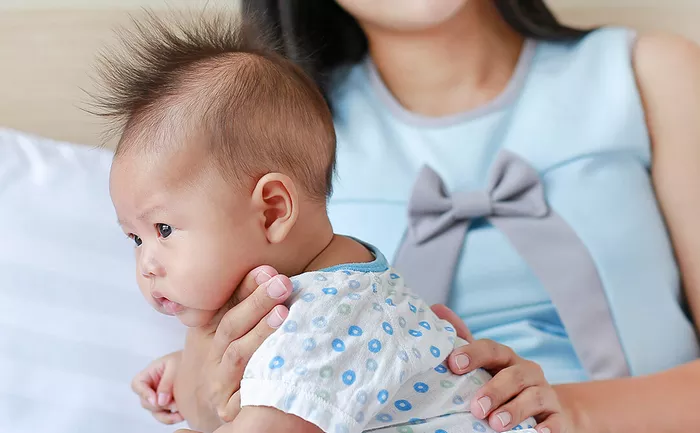Hiccups in babies are a common occurrence. They can happen at any time, often without warning. While they are usually harmless, they can be concerning for parents. Understanding how to help stop hiccups can bring relief to both babies and their caregivers. In this article, we will explore the causes of hiccups and the most effective methods to stop hiccups in babies.
Understanding Hiccups in Babies
Hiccups are involuntary contractions of the diaphragm. This muscle separates the chest from the abdomen and plays a crucial role in breathing. When the diaphragm spasms, it causes a quick intake of breath. This sudden intake of air is then stopped by the closure of the vocal cords, resulting in the “hic” sound.
In babies, hiccups can occur for several reasons. One common cause is feeding. Babies may swallow air while eating, which can lead to hiccups. Overeating can also cause the stomach to stretch, which may irritate the diaphragm and trigger hiccups. Additionally, sudden changes in temperature, excitement, or crying can also lead to this condition.
While hiccups can be annoying for babies, they usually do not cause any pain or discomfort. Most babies outgrow them by the time they are 12 months old. However, knowing how to stop hiccups can make both babies and parents feel better.
Simple Techniques to Stop Hiccups
There are several techniques parents can use to help stop their baby’s hiccups. These methods are safe and easy to try. Here are some effective ways to help your baby:
1. Burping
One of the most effective ways to prevent and stop hiccups in babies is to burp them during and after feeding. Burping helps release any trapped air in the stomach. This can reduce the chances of hiccups occurring.
To burp your baby, hold them upright against your chest or sit them on your lap. Gently pat or rub their back until they burp. You may need to do this several times during a feeding, especially if your baby is prone to hiccups.
2. Feeding Position
The position in which you feed your baby can also help reduce hiccups. Try to keep your baby in a more upright position while feeding. This can help minimize the amount of air they swallow.
You can hold your baby in a vertical position, or use a bottle with a slow-flow nipple. This will allow your baby to drink without gulping too much air. If breastfeeding, make sure your baby latches on properly to avoid air swallowing.
3. Pacifier
Using a pacifier can help soothe a baby and potentially stop hiccups. Sucking on a pacifier can help relax the diaphragm and calm your baby. It may also reduce any anxiety your baby may be feeling, which can contribute to hiccups.
If your baby enjoys a pacifier, offering it during hiccups might help. It’s a simple and effective way to distract them from the hiccups.
4. Gripe Water
Gripe water is a natural remedy that some parents use to relieve various digestive issues in babies, including hiccups. It is an herbal supplement that typically contains ingredients like ginger and fennel. These ingredients may help soothe the digestive system.
Before using gripe water, consult your pediatrician. They can recommend a safe product and dosage for your baby. Keep in mind that not all babies respond to gripe water, but some parents find it effective.
5. Changing Activities
Sometimes, changing your baby’s activity can help stop hiccups. If your baby is crying or overly excited, try soothing them. Gently rock or cuddle your baby. You can also change the scenery by taking them to a different room or outside.
Distraction can help shift their focus away from the hiccups. Engaging your baby with a toy or a song may also help ease the situation.
6. Time and Patience
Most hiccups will resolve on their own. If you try various methods and nothing seems to work, don’t worry. Give it some time. Most babies will outgrow hiccups by their first birthday. Patience is key, and understanding that this is a normal part of infant development can help.
7. Gentle Pressure
Applying gentle pressure to your baby’s stomach can sometimes help stop hiccups. You can do this by gently pressing your palm against your baby’s abdomen. Alternatively, you can lay your baby across your lap while you support their chest and head. This position puts slight pressure on the diaphragm, which may help stop the hiccups.
However, be cautious with this method. Always ensure that your baby is comfortable and not in any distress. If they seem uncomfortable, stop immediately.
When to Seek Medical Advice
In most cases, hiccups are harmless and resolve on their own. However, if your baby experiences hiccups frequently or if they last for an extended period, it may be worth consulting a pediatrician. They can help rule out any underlying issues that might be causing the hiccups.
Additionally, if your baby seems to be in pain, has difficulty breathing, or is unable to feed properly due to hiccups, seek medical advice. These symptoms may indicate a more serious condition that requires attention.
See also: How To Treat Hiccups In Newborns
Conclusion
Hiccups in babies are a common and usually harmless occurrence. Understanding how to stop them can help ease any discomfort your baby may feel. By using techniques like burping, feeding in an upright position, and providing distraction, you can help reduce the frequency and duration of hiccups.
Remember that most babies will outgrow hiccups as they develop. With patience and a little trial and error, you will find what works best for your baby. Always consult your pediatrician if you have concerns about your baby’s hiccups or overall health.
Related topics:


